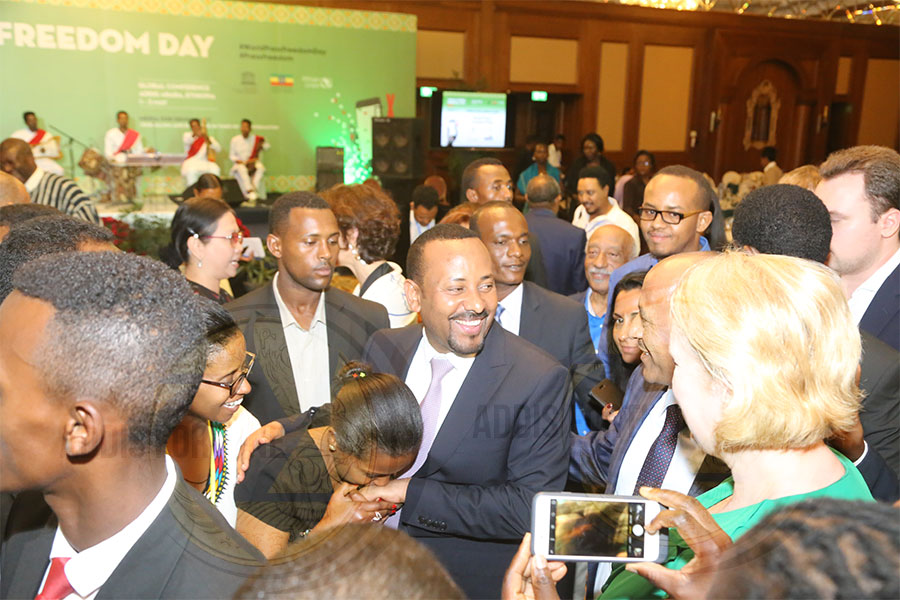
Fortune News | May 04,2019
Dec 14 , 2019.
By any measure, starting life in the small town of Beshasha, a town with no running water or electricity, as Abiy Ahmed (PhD) recalled, with little privileges to give him a leg up in life, to be bestowed arguably the most respected award and recognition on the world stage is a big achievement. Congratulations are in order for Prime Minister Abiy who received the Nobel Peace Prize in Oslo on December 10, 2019. This is an honour that goes for posterity!
Understandably, there is a lot of elation and pride among his supporters and country folks evident in the large rally and the big welcome he received upon his return home in the middle of last week. However, as many have mentioned before and he himself acknowledged, “It is 10pc celebration and 90pc responsibility for him to work harder for peace." Some may say it is too early to award him now, as the Nobel Committee conceded in its statement. But its members believed now is the time to recognize and encourage Abiy for a promise he embodies. That in itself is a recognition of a lot that will challenge him.
The challenges at home are complex, varied and testing. But not insurmountable.
The Nobel Committee summarized internal displacement and inter-communal rivalries as the major ones. But it is clear that the list is much longer, as it is being discussed widely and debated fiercely on the domestic front.
The most urgent challenge that has dogged the Prime Minister and has proven to be his Achilles' heel is the lack of law and order in the country. Too many people are internally displaced. The loss of lives is staggering as the complacence should be regrettable. This has resulted in anxiety and fear in the population. There is even more apprehension due to the emotional intensity of campaigning for the upcoming national elections, feared to exacerbate inter-communal clashes, worsening the security situation even more. The continued confrontations between various strands of nationalism at a time the state is perceived to be fragile and the dominant ruling party crumbling have emboldened their troops on the ground, leading to deadly outcomes.
Partly as a result of this anxiety and uncertainty, but also because of what Abiy inherited as he came into office, the state of the economy is less than ideal. After many years of uninterrupted growth in GDP, the economy has cooled off. In a country bursting with a youth bulge in its population, the slowdown has meant a rapid rise in the already high unemployment number. With the restless and unemployed youth increasingly mobilized behind forces of conflicting nationalisms, the two problems are feeding on each other.
The erosion in the value of the Birr against major currencies and galloping inflation are making the lives of lower middle-class urbanites on fixed incomes unbearable. Among these hordes of the disaffected, the majority are civil servants on whose efforts many of the government’s reform programmes depend. A disillusioned and unmotivated bureaucracy is bad news for a leader with the heavy credential of a "reformist". Motivating, mobilising and uniting these armies of workers - even as he is becoming a polarising figure himself - who are on the frontlines of implementing the reform agenda will certainly be a severe test of Abiy’s leadership ability.
With the launching of the Homegrown Economic Reform Agenda, his administration's road map for economic growth in the next three years, Abiy has shown his position more clearly than perhaps in any other area. He has put his faith in a more market-friendly and liberal economic policy environment. He now has to prove his powers of execution on the ground.
If the award says anything on these domestic fronts, it is only that the jury is still out.
The Prime Minister has rather enjoyed a measure of success in the international arena. The effect of his charm offensive is obvious for anyone who has traveled outside of the country or interacted with the diplomatic corps and development community. The euphoria across the world is no less pervasive as it is at home. The international community appears to be already voting in his favour, pouring money to salvage an economy tattering under his watch.
It all started with the rapprochement with Eritrea that got him the Nobel Peace Prize. Abiy has also played a constructive role in the transition in Sudan, while his success in mediating between leaders of Djibouti and Eritrea, as well as Kenya and Somalia, has been modest. In a strategically important but perpetually unstable area that is the Horn of Africa, nothing is straightforward. He still faces many uphill battles. Even in the very peace deal that won him the Nobel, the relations with Eritrea, there is much that remains unclear.
Over a year after deals were signed between Abiy and Eritrea's strongman, Issayas Afeworqi, and after the initial euphoria and flurry of actions in opening up the borders and the resumption of flights, things have significantly cooled off since. The land crossings remain closed. Few of the many legal frameworks that are supposed to govern relations between the two countries have materialized. None of the accords reached in Algiers, the basis of normalisation between the two nations, are in sight. Neither the Boundary nor the Claims commissions rulings have been realized. The Ethiopian army is still deployed in the town of Badme, a flashpoint of conflict but awarded to Eritrea by the Boundary Commission.
The situation in the long borders of the two countries remains as highly fortified as it has been for the last two decades.
There are little institutional interactions other than what could remain to be the friendly relationship and fuzzy goodwill between Prime Minister Abiy and President Issayas. As has been proven by none other than the history of the two countries, that is clearly not enough. Translating the warm words and tight handshakes into binding legal documents that can make the peace deal sustainable and long-lasting is still an unfinished homework. The Nobel Peace Prize should be more of a reminder to what is yet to be accomplished than a source of pride and a reason for complacency.
In his Nobel lecture, Abiy portrayed the Horn of Africa as a place witnessing a contestation among the big powers on one side with the extremists on the other. Balancing these contending interests is a daunting task. The relationship between the countries in the Horn, increasingly influenced by proxy powers, requires wise maneuvering and mature strategic thinking.
Part of the reason the Nobel Committee awarded the Prize to Abiy is this recognition of the enormity of the task. He needs to match it with acknowledgement and appreciation of the heavy weight of this burden. He would do himself a good favour if he keeps his distance from close aides whose worldviews are simplistic, as their take on issues is reductionist.
Members of the Nobel Committee have demonstrated their appreciation for the good-intentioned start he has made. It is clear that they wanted to encourage and support his efforts. In a sense, it is more aspirational than one given for a task completed. It is not the first time they have done that. The award of the Nobel Peace Prize at the beginning of Barack Obama’s presidency had also the same goal of encouraging instead of rewarding achievement.
However, that should not take the shine away from the medal. A flickering light in the darkest alley should be more appreciated than a blinding searchlight in a lighted field. The Nobel Committee certainly knows it took a risk as they did with Obama, since he did not deliver as much as hoped for in the nuclear non-proliferation arena they had encouraged. Hopefully, it will not be the same this time around. Abiy will leave a legacy in a country on the path to democratic order.
Such is no easy feat. He realises it and will not be triumphant but humbly determined.
PUBLISHED ON
Dec 14,2019 [ VOL
20 , NO
1024]

Fortune News | May 04,2019

My Opinion | Feb 17,2024
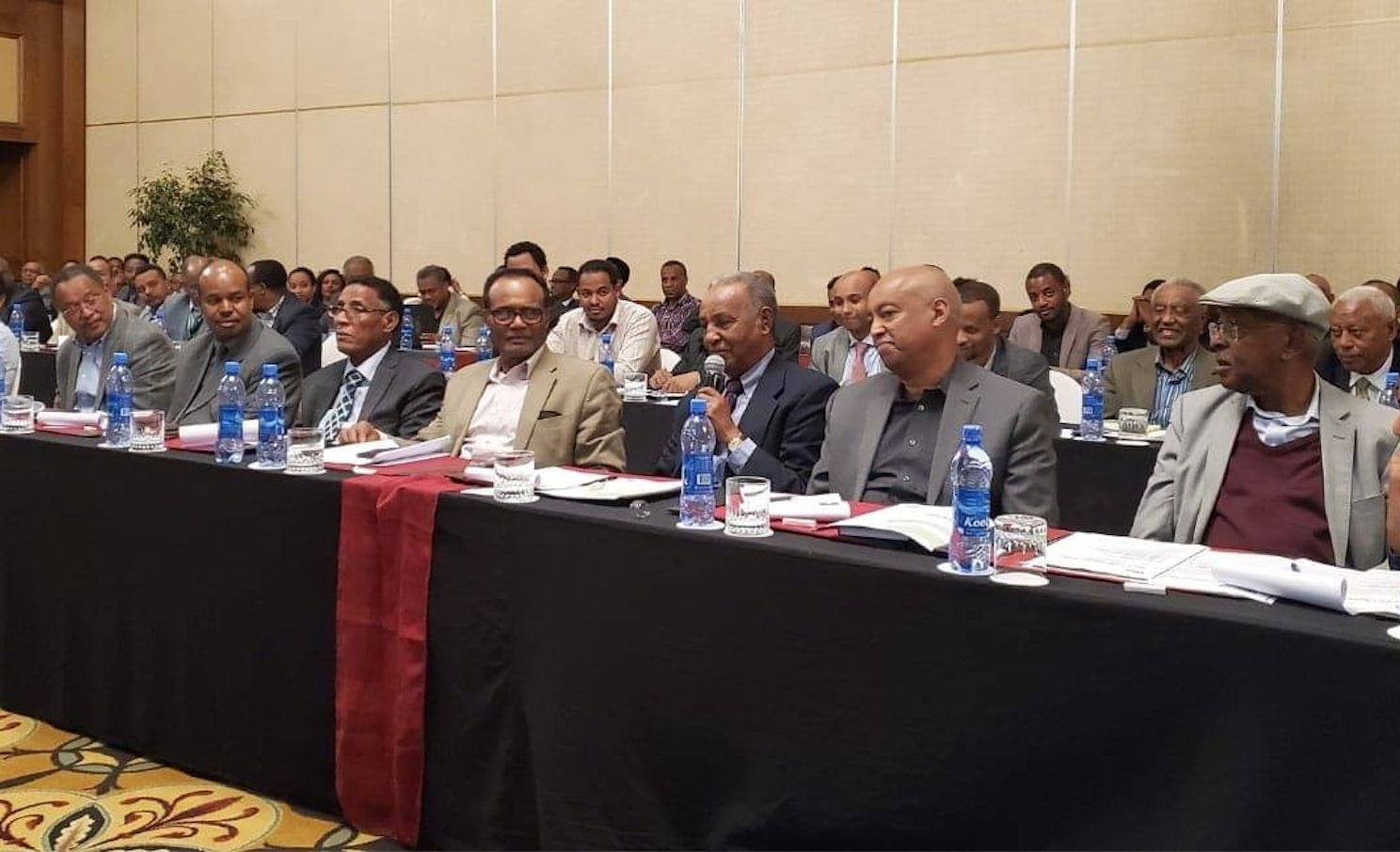
Fortune News | Nov 28,2019

View From Arada | May 18,2019
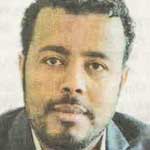
Verbatim | Nov 16,2019

Commentaries | Mar 20,2021
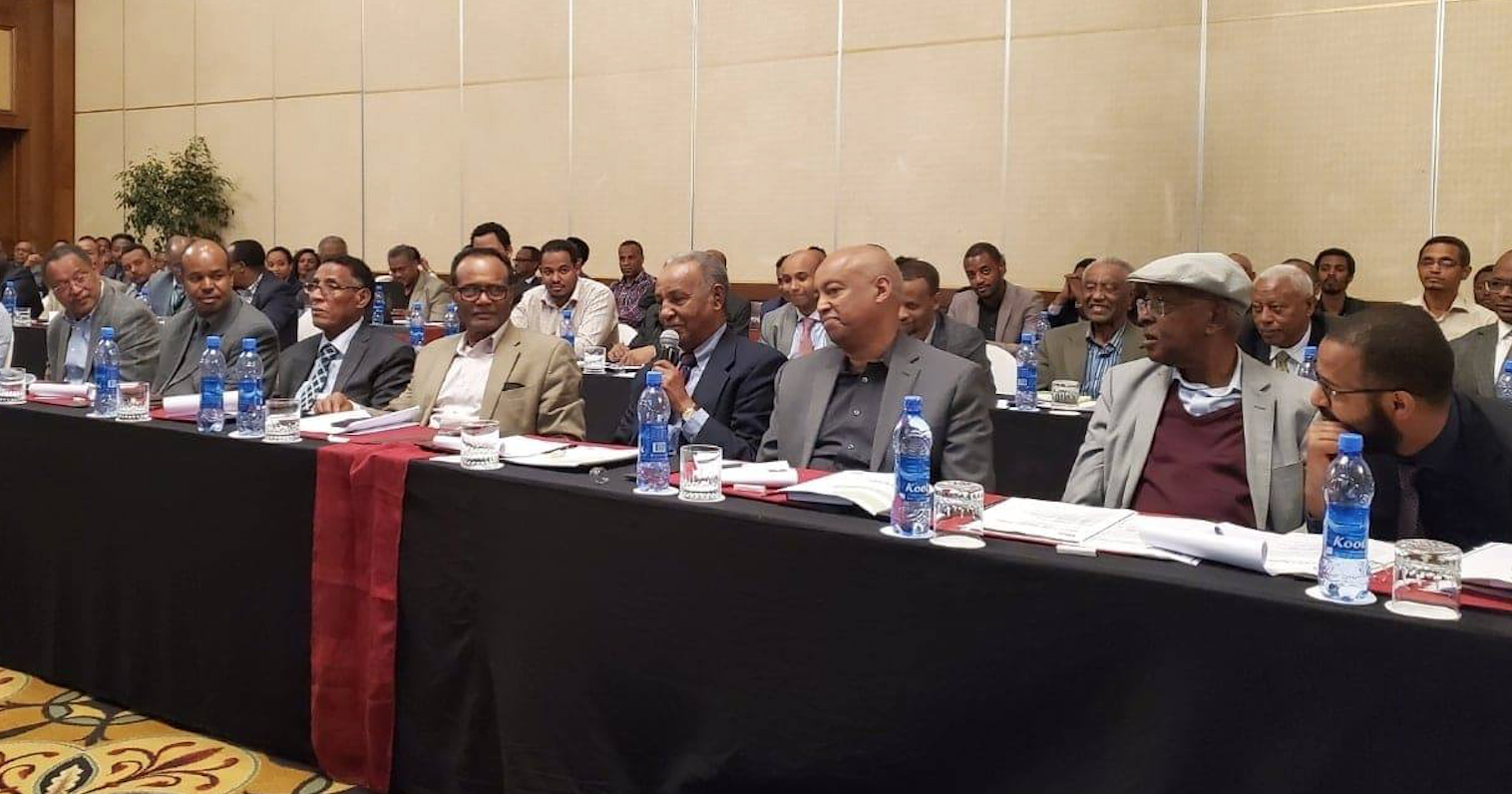
In-Picture | Nov 28,2019

My Opinion | Dec 26,2020
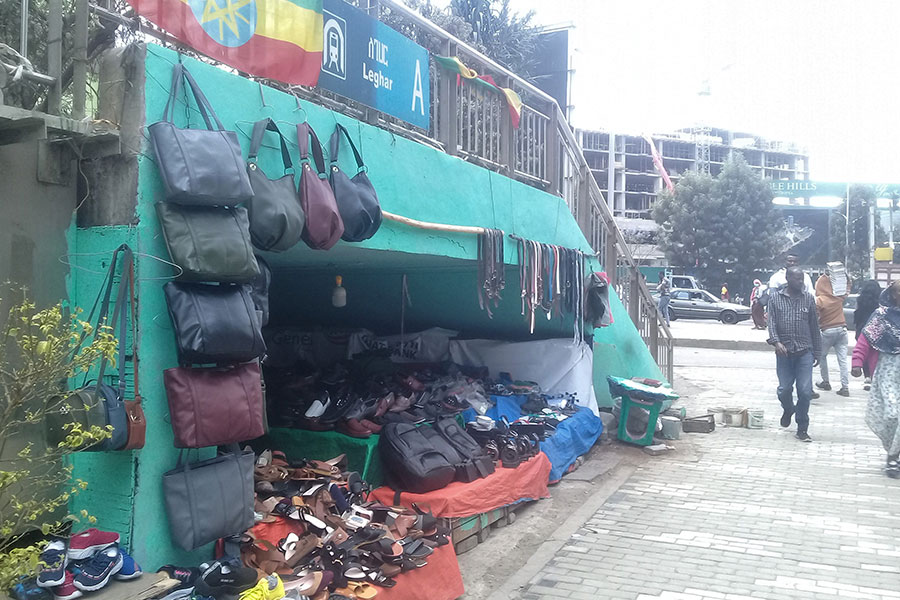
Radar | Mar 05,2022
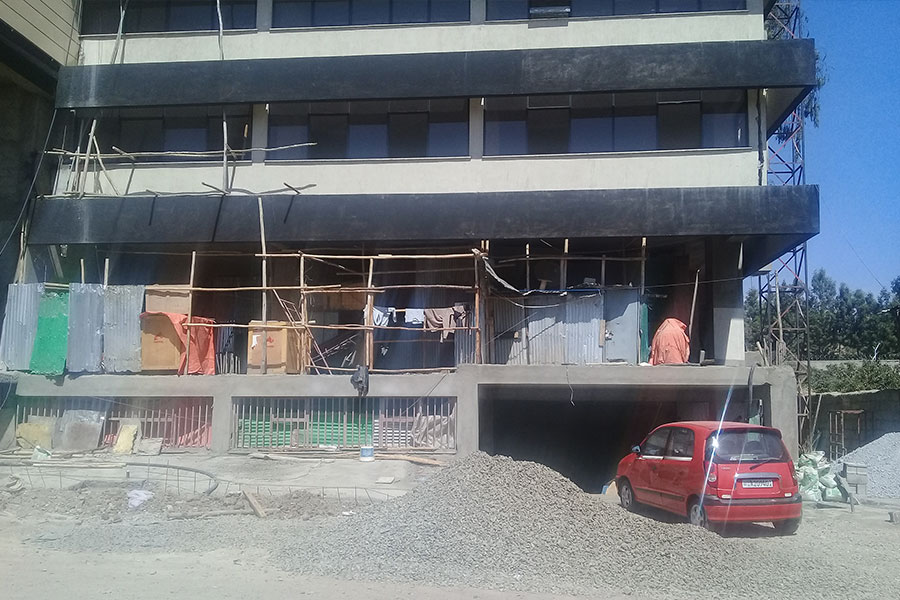
Radar | Dec 25,2021

Photo Gallery | 172125 Views | May 06,2019

Photo Gallery | 162353 Views | Apr 26,2019

Photo Gallery | 152145 Views | Oct 06,2021

My Opinion | 136362 Views | Aug 14,2021

Dec 22 , 2024 . By TIZITA SHEWAFERAW
Charged with transforming colossal state-owned enterprises into modern and competitiv...

Aug 18 , 2024 . By AKSAH ITALO
Although predictable Yonas Zerihun's job in the ride-hailing service is not immune to...

Jul 28 , 2024 . By TIZITA SHEWAFERAW
Unhabitual, perhaps too many, Samuel Gebreyohannes, 38, used to occasionally enjoy a couple of beers at breakfast. However, he recently swit...

Jul 13 , 2024 . By AKSAH ITALO
Investors who rely on tractors, trucks, and field vehicles for commuting, transporting commodities, and f...

Oct 5 , 2025 . By NAHOM AYELE
In Meqelle, a name long associated with industrial grit and regional pride is undergo...

Oct 5 , 2025 . By BEZAWIT HULUAGER
The federal government is set to roll out a new "motor vehicle circulation tax" in th...

Oct 5 , 2025 . By NAHOM AYELE
The Bank of Abyssinia is wrestling with the loss of a prime plot of land once leased...

Oct 5 , 2025 . By BEZAWIT HULUAGER
The Customs Commission has introduced new tariffs on a wide range of imported goods i...